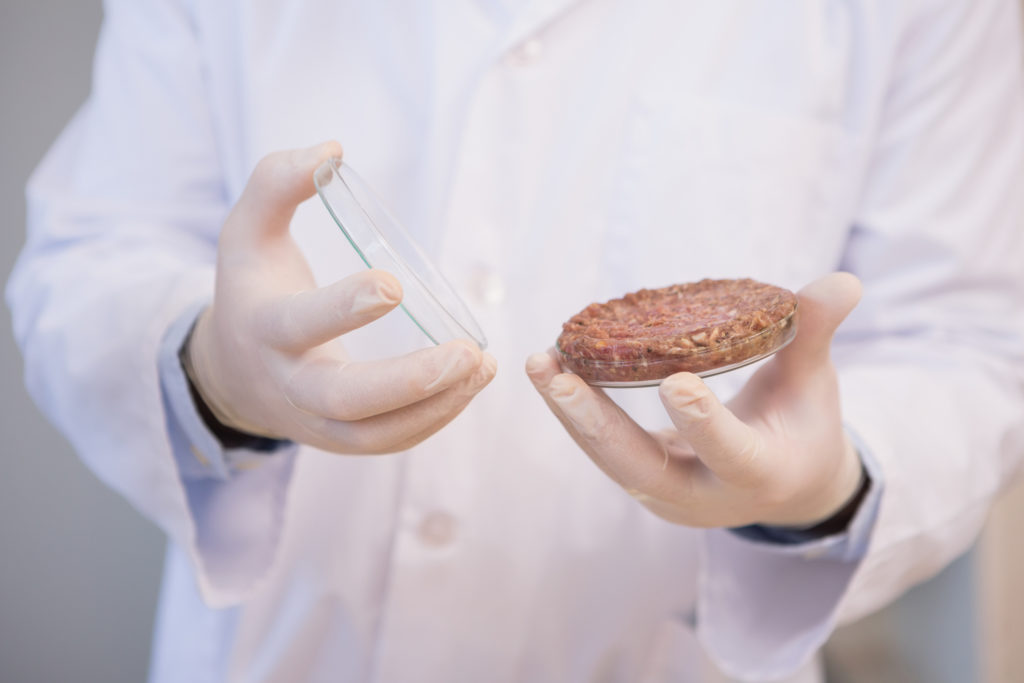The majority of consumers who convert to plant-based protein diets do so because of environmental and ethical reasons. However, with lab-grown meat products on their way to entering the mainstream market, many of these consumers have been found to be willing to eat such products because of the fact that they are not sourced from animals and produce a lower carbon footprint. This could mean a lot of sales potential for lab-grown meat producers because they will have an upper hand in both vegan and meat-eating consumer demographics.
PR firm, Ingredient Communications, conducted a survey of 1,000 US and UK consumers regarding their views on lab-grown meat products. All participants were told that lab-grown meat products were grown from meat cells and not sourced from animals. The consumers were then asked if they would be willing to purchase and consume lab-grown meat products from stores or restaurants. Out of all respondents, 38 percent said that they would not try such products whereas 29 percent said that they would and 33 percent were on the fence.
From these results, researchers found that Americans were more open to trying lab-grown meat products over consumers from the UK. About 40 percent of American respondents claimed that they would want to try lab-grown meats while only 18 percent of UK participants agreed.
However, the most surprising results from this survey were from vegan participants, 60 percent of which claimed to be willing to try lab-grown meat. Such results make the vegan demographic more likely to try cultured meat products than any other demographic. In addition, 23 percent of vegetarians, 21 percent of pescatarians and 28 percent of meat eaters claimed to be willing to try lab-grown meat.
These survey results are indicative of the importance of ethical and sustainable meat production. Considering the fact that lab-grown meat products do not require the slaughter of animals and mass farming facilities (that are known to contribute to carbon emissions), they are likely to attract vegan and vegetarian consumers.
“It’s easy to see why so many consumers welcome the prospect of lab-grown meat. People enjoy eating meat, but often feel guilty about related issues such as animal welfare and the impact of farming on the environment. Cultured meat addresses those concerns, which is a compelling benefit. Nevertheless, we were surprised by how many respondents expressed a willingness to eat cultured meat. It’s such a new concept and when you consider the backlash against GMOs, and the unstoppable momentum of the naturalness trend, it seems counter-intuitive that people would be willing to eat meat produced in a laboratory. However, our survey shows that it has appeal for a significant proportion of consumers, particularly those in America,” said Richard Clarke, Founder & Managing Director of Ingredient Communications.
Cultured meat companies such as SuperMeat, Finless Foods and Memphis Meats have been catching a lot of attention from the media for their innovative and ethical meat production methods. However, because the majority of lab-grown meat products are produced through sourcing animal cells – most commonly through harvesting blood plasma from unborn calves – it cannot be considered to be 100 percent vegan. Nevertheless, cultured meat production reduces greenhouse gas emissions by up to 96 percent, requires 99 percent less land and 82-96 percent less water, making it the obvious choice for eco-friendly and ethical consumers. In addition, because cultured meat is grown in laboratory environments, it does not require nearly as many antibiotics and chemicals that are used on live meat bearing animals. Cultured meat producers can also control the type of fats that go into their products, such as omega-3 fatty acids that are known to be good for the heart. Such controlled and ethical production techniques seem to incorporate all the values of the current health-focused, eco-friendly and ethical consumer demographic.
According to CNN, lab-grown meat products might be sold in restaurants before the end of 2018 and we might be able to buy cultured meat in grocery stores by 2021.












Join or login to leave a comment
JOIN LOGIN